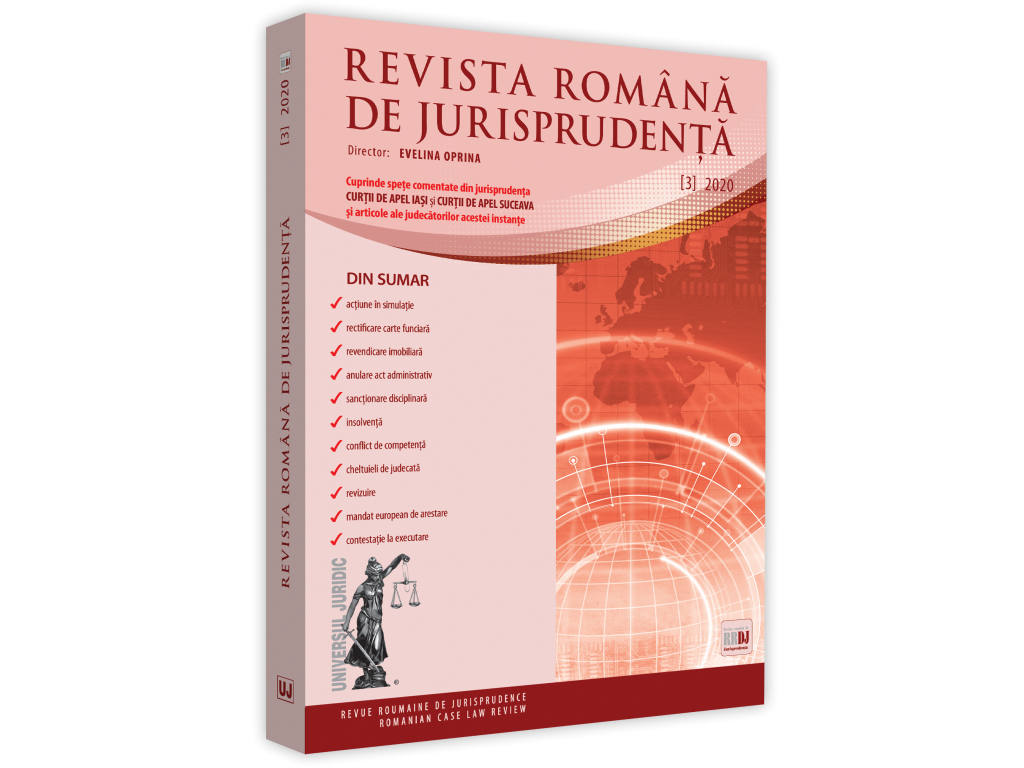39. Interdicția temporară la concediere pe durata incapacității temporare de muncă, stabilită prin certificat medical conform legii
39. Temporary prohibition to dismiss during during the temporary incapacity for work, duly confirmed by medical certificate; the date of reference of the legal prohibition
Author(s): Elena Crizantema PanainteSubject(s): Law, Constitution, Jurisprudence, Civil Law
Published by: Universul Juridic
Keywords: dismiss; the temporary incapacity for work; medical certificate;
Summary/Abstract: The provisions of Art. 60 para. (1) of the Labor Code concerning the “dismissal of employees” refer to the legal act of the employer not its service. This tenet is reasonable and meets the logical intention of the normative interpretation. The dismissal decision is a unilateral act of the employer, subject to the general conditions of validity and to the special conditions of substance and form provided by the Labor Code. The legal determination of a certain term in which it has legal effects (service) does not change its nature and has no influence on the legal regime. Being subsumed to the substance validity conditions of the unilateral act of the employer, the confirmation of any of the cases of prohibition of dismissal is on its issuance date and it is not legally consistent to request the employer to know the facts of the employee on the receipt of the notification. It is true that the dismissal decision becomes effective only as of its service date, pursuant to Art. 77 of the Labor Code, however the legal validity of the act is confirmed on the issuance date, pursuant to Art. 1246 para. (1) of the New Civil Code and the legal effects of the unilateral act of the employer, by serving the dismissal decision will be suspended until the termination of the cause for suspension. In the absence of an imperative legal condition regarding the expression of the mandatory mentions provided by Art. 252 para. (2) of the Labor Code, the annulment of the sanctioning act occurs only when the form of the employer’s act infringes the appellant's rights protected by the mandatory provisions, not when only the wording does not faithfully comply with the structural model set out in the provisions Art. 252 para. (2) of the Labor Code. Work relations are based on the principle of consensuality and good faith according to Art. 8 para. (1) of the Labor Code and the work relations are intuitu personae in consideration of the personal and professional qualities of the employee. If depending on the severity of the action, the consequences occurred or that might have occurred, the employer feels exposed to the real risk that its public image is affected, it is fully entitled, based on the provisions of Art. 248 para. (1) letter e) of the Labor Code to the disciplinary termination of the employment contract, even absent previous misdemeanors of employee and even in case of a long irreproachable career. Undoubtedly the principle of freedom of work and freedom of the person, in general, fully ensures the right of the appellant opponent to choose its workplace, and the best modalities for professional development but none of these arguments may affect the right of the other contractual party, the employer, to rule on the organization of its entity.
Journal: Revista Română de Jurisprudenţă
- Issue Year: 2020
- Issue No: 03
- Page Range: 258-269
- Page Count: 12
- Language: Romanian
- Content File-PDF

